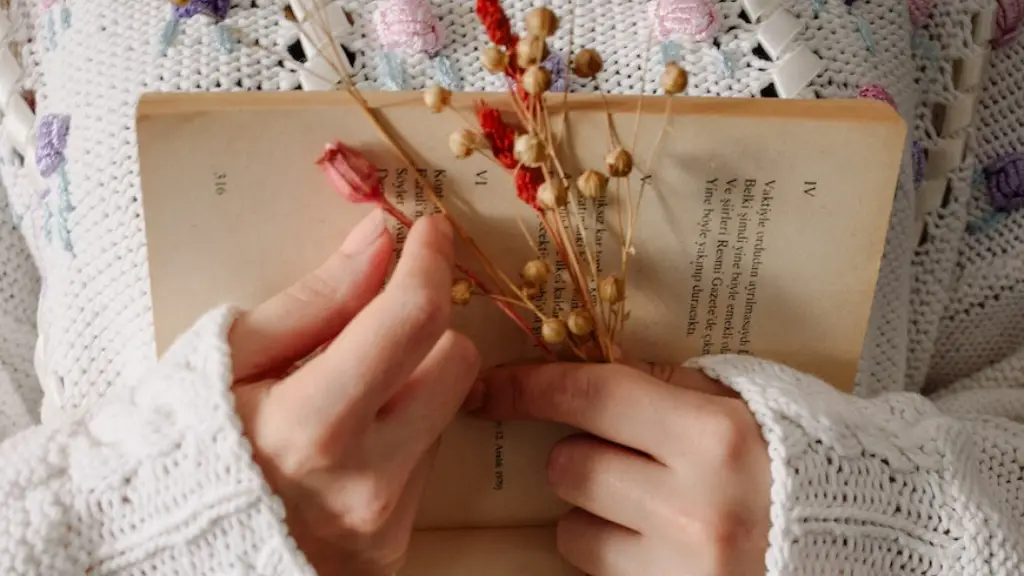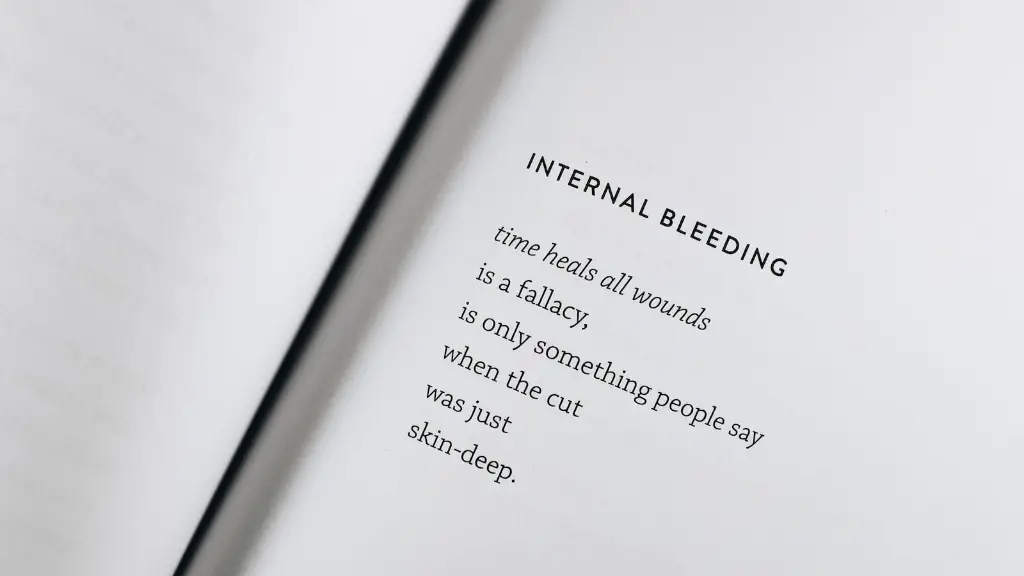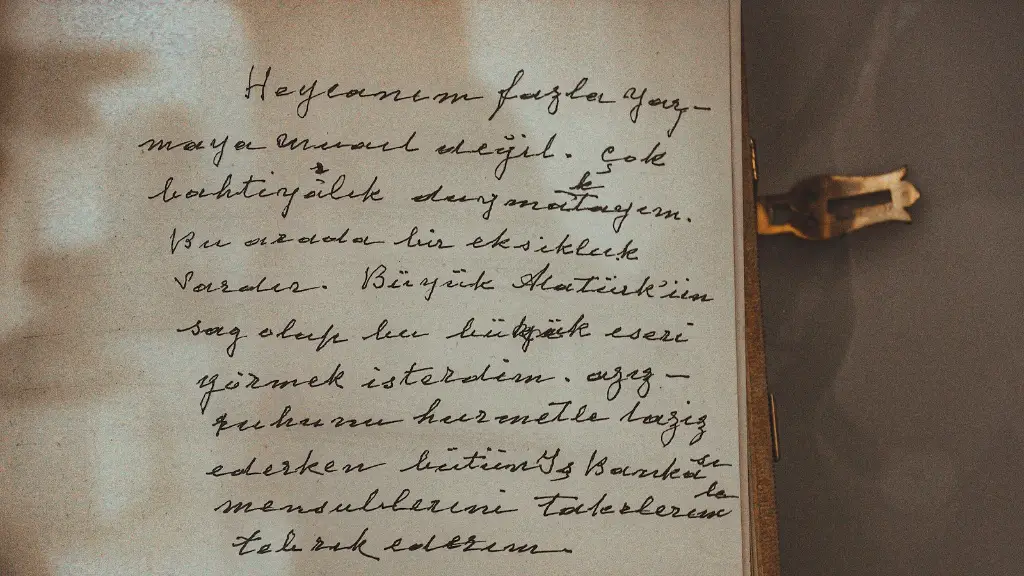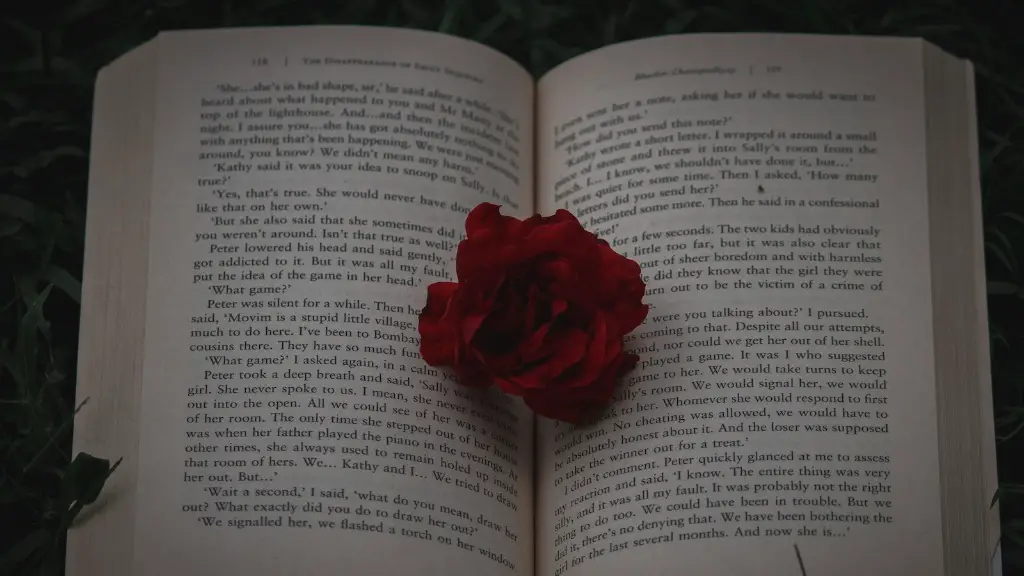Muse in poetry is a term that has been used for centuries to describe the sources of poetic inspiration. The concept has evolved over time and many authors now consider the muse to be an important part of the creative process. The idea of being inspired by a muse has been around since the days of ancient Greece, when it was believed that some divine power was motivating the creative process. In modern times, authors often view the muse as something more than just divine inspiration; they consider it to be part of the creative power within them. This article will explore the topic of muse in poetry in greater depth.
The most common idea associated with the term ‘muse’ is that of a divine feminine figure who inspires and supports a poet in the creative process. This figure is often seen as having a direct connection to the poet and being able to provide them with insight and guidance. This can be seen in Ancient Greek mythology where the Muses were goddesses who aided in the creative process. The figure of the muse is also present in many religions, where it is personified by specific aspects such as artists, writers or even prophets.
In modern times, the idea of the muse has taken on a different form as authors have begun to view it as a source of inspiration within themselves. Writers such as T.S. Eliot and Walt Whitman both stated that they could feel their own personal muse and channeled it into their work. This view of the muse as something internal has become more popular in recent years as it allows writers to can explore the creative process without relying on external inspiration.
The idea of the muse can take many forms, ranging from a general source of inspiration to a specific external figure. In either case, the muse is regarded as an important source of creativity and can help poets unlock their own creative potential. The presence of a muse also provides comfort and support to the creative process, allowing poets to explore and express their feelings freely.
In conclusion, the idea of the muse in poetry has been around for centuries and has evolved over time. Modern authors now view the muse as a source of internal inspiration, a figure that can provide comfort, and a source of guidance. The presence of a muse can help to nurture a poet’s creativity, allowing them to create works that reflect their own unique perspective.
Using the Muse for Creation
The muse in poetry can act as a way to help authors create works that have a unique perspective. Writers use their personal muse as a source of inspiration that they can connect with on a deeper level. This allows them to access the creative power within them and explore their own feelings and opinions. By using their muse as a muse, authors can connect with their innermost thoughts and feelings and use them to create powerful works that speak to readers on an emotional level.
The muse can also help writers to create works that are creative and thought-provoking. By connecting with their muse, writers can push past their own boundaries and explore uncharted territories. This can help them to craft works that not only entertain but challenge readers and provoke them to think more deeply about their own lives.
In addition, the muse can be used to create works that have a message. Writers can connect to the deeper meaning of their muse and use it to add an extra layer of meaning to their work. This allows writers to create works that speak to readers on an emotional level and provide them with a sense of understanding.
Finding a Muse
For many authors, the idea of finding their own muse can be daunting. However, writers can start by looking within themselves and exploring their own feelings and thoughts. It is important to be open to new ideas and to give yourself permission to explore different avenues of thought. It is also important to take the time to reflect on your own life and the experiences that have shaped it. This can help to open up new connections and make your muse more accessible.
If you are still having trouble finding your muse, you can look to external sources for inspiration. This could include looking at art, reading literature, or even listening to music. All of these activities can help to open up new channels of thought and can help you to connect with your muse on a deeper level.
Finally, it is important to take the time to practice your craft. Writers can use their muse as a source of inspiration, but they must also put in the work to bring their work to life. This could include taking the time to read other authors, brainstorm ideas, and practice writing techniques. Doing this consistently will help to strengthen your connection to your muse, while also helping you to become a better writer.
Collaborating With Your Muse
Once you have connected with your muse and embraced the creative process, you may decide to collaborate with it. This could involve inviting another creative person into the mix, such as a painter or musician, to help bring your work to life. This could involve structuring your work around a painting, for example, or having a musician help create the perfect atmosphere for your poem.
Collaborating with your muse can open up new possibilities and can help you to create works that truly capture your message. It also provides an extra level of support and comfort, as another creative’s ideas and input can help to shape your work in new and exciting ways.
Capturing the Muse
Capturing the muse can be difficult, as it often requires you to move out of your comfort zone and explore new ideas and feelings. Some writers find it useful to keep a journal or notebook close by, so they can jot down ideas whenever they feel inspired. This could be as simple as writing down a line or two, or as complex as writing out entire scenes. This can help to capture the moment and capture your muse before it moves on.
It can also be helpful to use writing prompts to help draw out your muse. Writing prompts could include anything from a photograph to a suggestion to write about a specific topic. By taking the time to answer these prompts, you can open up new pathways for creativity and connect with your muse in a deeper way.
Respecting Your Muse
Finally, it is important to recognize and respect your muse. The muse is not a tool to use for your own gain and it is important to treat it with the respect it deserves. This means giving your muse space and time to develop and not forcing it to do things that do not feel natural.
It is also important to realize that the muse is not always accessible and that it will go away at times. This can be frustrating, but it is important to remember that the muse often returns when you are ready to listen to it again.
The Benefits of Having a Muse
Having a muse in poetry can bring many different benefits. It can provide support and comfort, deepen connections with your work, and push you to explore new creative realms. It can also serve as a source of inspiration, allowing you to create works that are truly unique and reflective of your personal experiences.
Having a muse can also help writers to trust their instincts and practice their craft. By having a personal source of inspiration, writers can give themselves permission to take risks and create works that have unique perspectives. Finally, having a muse can help writers to connect with readers on an emotional level and create works that move and inspire them.
Dangers of the Muse
While having a muse can be beneficial for the creative process, it is important to remember that it can also be dangerous. It is easy to become dependent on a muse and to allow it to become the sole source of inspiration. This can lead to stagnation, as the muse may be drained of ideas without other sources of inspiration to add to it. It is important to remember that a muse should be only one tool in the creative process and not the only source of inspiration.
In addition, the muse can come with its own risks. Too much reliance on the muse can lead to a lack of self-reflection and a lack of understanding of the themes and ideas within a work. This can lead to a work that does not have a clear message or that fails to capture the personalities of the author and readers.
Finally, the muse can sometimes lead to negative feelings, such as stress or anxiety. This is because of the pressure to produce quality work, as the muse is seen as a source of perfection. It is important to remember that perfection is not a realistic goal and that the creative process is not an exact science. There will be works that do not turn out as well as planned and this is something to be expected. It is important to remain flexible and not allow yourself to become consumed by the idea of perfection.





